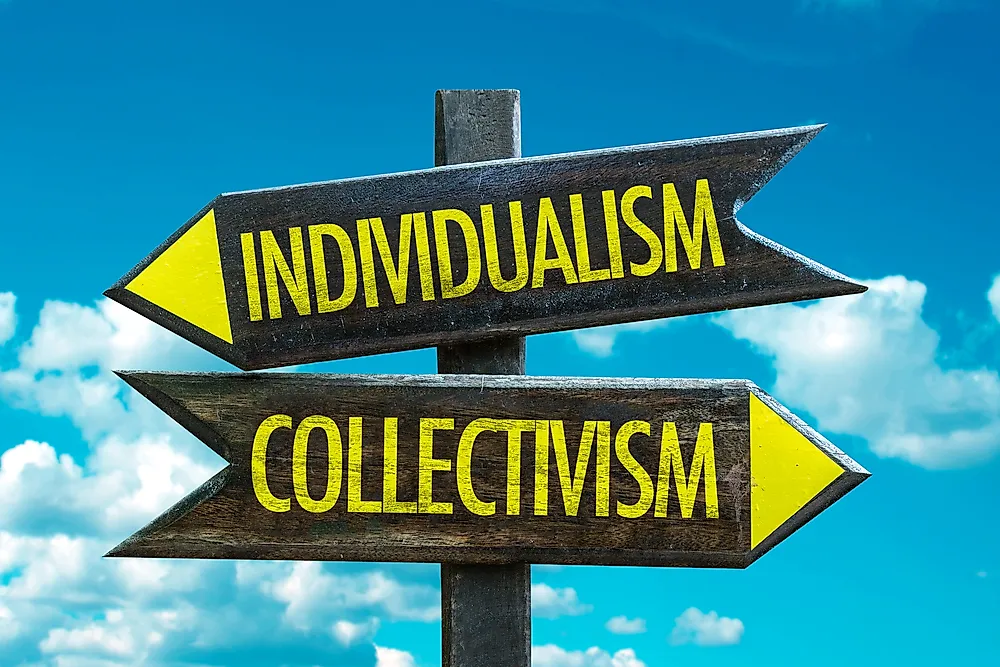What Is Collectivism?

Collectivism is a principle or a practice of encouraging togetherness by giving priority to a group rather than the individuals in the group. Tonnies, a German sociologist, described an early model of socialism and individualism using the terms community (Gemeinschaft) and society (Gesellschaft). Weber in 1930 used religion to show the contrast between collectivism and individualism, and he believed that Protestants were more self-reliant and individualistic compared to Catholics who encouraged interdependent relationships among people. Communism was also used in the former USSR to give rise to the new Soviet man who put aside individual needs and focused on the good of the collective. Collectivism and individualism are widely discussed but are not considered to be opposites. Typically, a self-report questionnaire is used to measure collectivism. There are several terminologies used to describe collectivism and individualism, and they include allocentrism and idiocentrism, interdependent and self-construal, and collective and private-self.
Theories Used to Describe Collectivism
Markus and Kitayama illustrated that there is a connection between a collectivistic person and the social surrounding. A person identifies themselves by the people around them, and this is evident in how a person behaves in public. The manner in which a person acts is dependent on other people as they are used as a point of reference. Tirandis and colleagues theorized a relational frame of reference, and the theory states that collectivism and individualism can be equated to vertical and horizontal relationships. Horizontal collectivism portrays equality between the members of a group while vertical collectivism shows that there is a sense of some people being higher in rank than others in a group and one need to put their personal needs aside and to focus on the needs of the team. W.E.B Dubois and other researchers have studied the historical perspective of collectivism in cultural groups. They noted that oppressed, marginalized groups tend to prefer collectivism over individualism. Research done in organizations has found some collectivism like institutional communism and in-group collectivism. Institutional collectivism is seen between people of the same status in an institution, while in-group/ family collectivism occurs between people who chose to group like family and friends.
Collectivism and Perception
Studies have shown that there is a correlation between collectivism and understanding or perception. Individuals from collectivistic cultures tend to think of things as a whole, and this is shown in different ways. Masuda and Nisbett illustrated that Japanese students, who lived in a collectivistic culture, tend to pay more attention to a stimulus and had a better memory of it than North American students. People from collectivistic communities tend to depend more on environmental cues in their perception unlike people from individualistic societies. In a research where students were shown fish swimming in one direction with one believed to be swimming in front of the rest. Chinese students thought that some external forces (for instance being chased) was the reason why one fish was swimming ahead, while American students believed that an internal energy (leader) is the reason why the fish was swimming ahead of the others. The difference in perception among the students from America and Asia is an attributional style schema associated with collectivistic cultures as opposed to individualistic societies. In categorization schemas, collectivistic people tended to think on how objects related and sort them together for that reason instead of shared qualities.
Countries with Collectivistic Culture
Some nations with collectivistic cultures today include China, Japan, Sweden, Norway, Denmark, Korea, Iceland, India, Pakistan, Ghana, Morocco, Russia, Saudi Arabia, Singapore, Portugal, Azerbaijan, Polynesia and several others.











